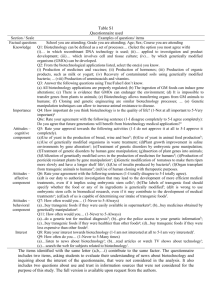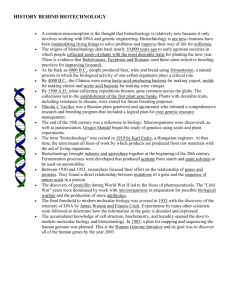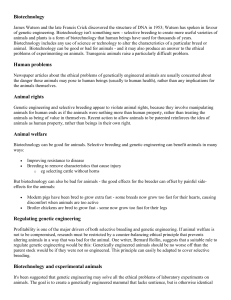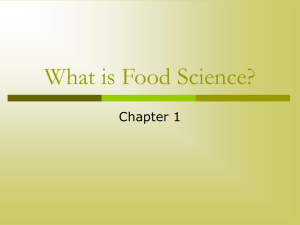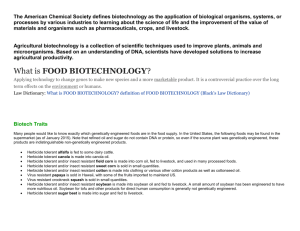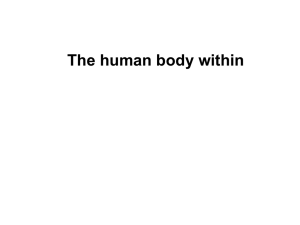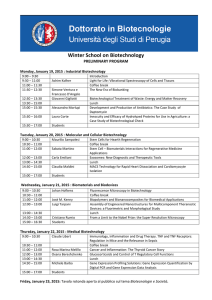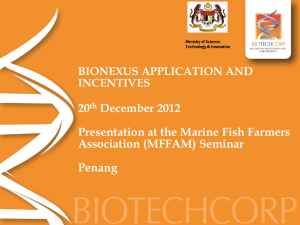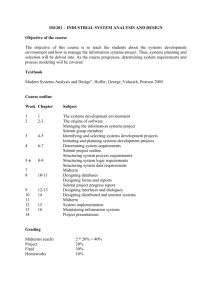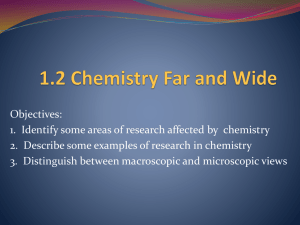4. Course adminsitrator
advertisement
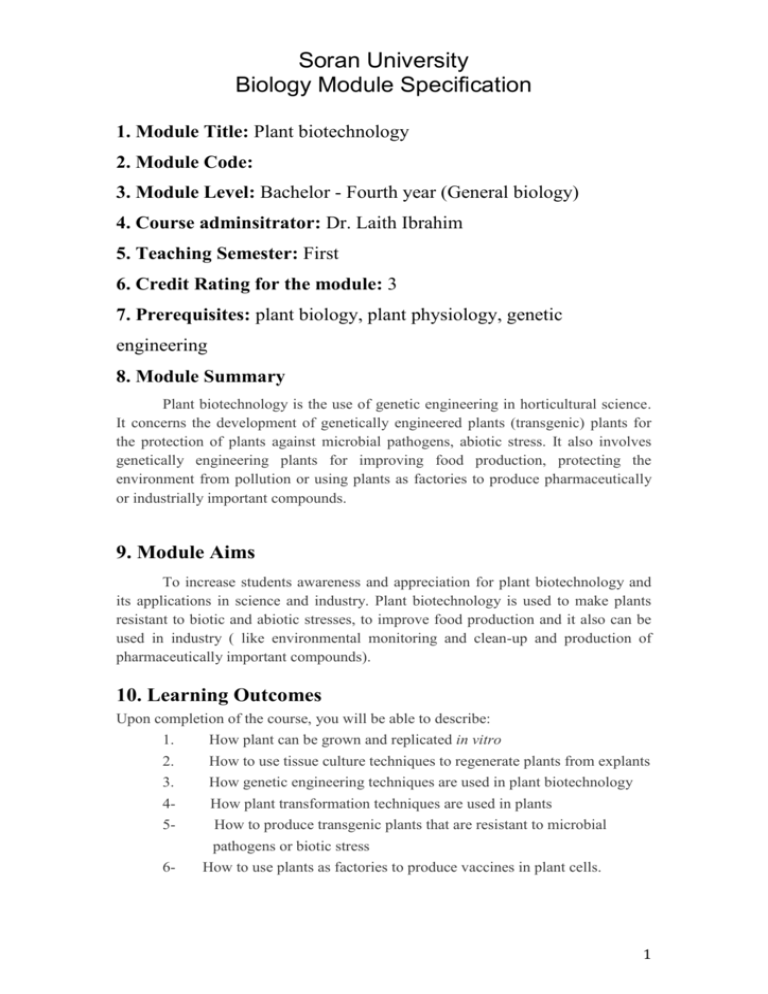
Soran University Biology Module Specification 1. Module Title: Plant biotechnology 2. Module Code: 3. Module Level: Bachelor - Fourth year (General biology) 4. Course adminsitrator: Dr. Laith Ibrahim 5. Teaching Semester: First 6. Credit Rating for the module: 3 7. Prerequisites: plant biology, plant physiology, genetic engineering 8. Module Summary Plant biotechnology is the use of genetic engineering in horticultural science. It concerns the development of genetically engineered plants (transgenic) plants for the protection of plants against microbial pathogens, abiotic stress. It also involves genetically engineering plants for improving food production, protecting the environment from pollution or using plants as factories to produce pharmaceutically or industrially important compounds. 9. Module Aims To increase students awareness and appreciation for plant biotechnology and its applications in science and industry. Plant biotechnology is used to make plants resistant to biotic and abiotic stresses, to improve food production and it also can be used in industry ( like environmental monitoring and clean-up and production of pharmaceutically important compounds). 10. Learning Outcomes Upon completion of the course, you will be able to describe: 1. How plant can be grown and replicated in vitro 2. How to use tissue culture techniques to regenerate plants from explants 3. 456- How genetic engineering techniques are used in plant biotechnology How plant transformation techniques are used in plants How to produce transgenic plants that are resistant to microbial pathogens or biotic stress How to use plants as factories to produce vaccines in plant cells. 1 11. Syllabus Weak1 Weak2 Weak3 Introduction to plant biotechnology Plant cell and how plants respond to the external environment Plant tissue culture techniques Weak4 Weak5 Weak6 Weak7 1st Midterm EXAM Genetic engineering techniques plant transformation techniques Engineering plants resistant to microbial pathogens Engineering plants resistant to abiotic stress and transgenic plants for high food production 2nd Midterm EXAM Weak8 Weak9 Weak10 Weak11 transgenic plants for environmental cleanup and monitoring Plant pharming (plants as factories to produce vaccines, proteins, enzymes) Induced resistance in plants- an environmentally friendly method to activate resistance in plants GMO debate (the debate over genetically modified organism) 3rd Midterm EXAM 12. Assessment Strategy There are two parts to this course, the lecture and the laboratory. The lecture will provide an opportunity to discuss conceptual information in the text, and current topics in the subject. The laboratory will provide hands-on opportunities in structured labs and in independent investigations. Both will count significantly to student’s final grade. 13. Summary description of assessment [A table summarizing the assessment components of the module] Assessment Type Theory EXM 3 Midterm EXM Description of Item -Exam questions will be of different types: (define, compare, give reason to the following, discuss briefly, problem-based questions, illustrate). % Weighting 60 % Grading Excellent: ≥ 90 Very Good:80-89% 20 % Good: 70-79 % Medium: 60-69 % Final EXM 40 % Fair: 50-59 % 2 Practical EXM Exam questions will be of different types to evaluate the understanging of students of lab experiments 35 % Midterm EXM 15 % Final EXM 20 % 5% Report/Semi nar 14. Learning Session Structure 1 x 2 h lectures, 1 x 2 h practical sessions, the lectures will be in the form of power point slides(ppt). 15. Bibliography 17. Prepared by Dr. Laith ibrahim 18. Validated and Verified by 3
